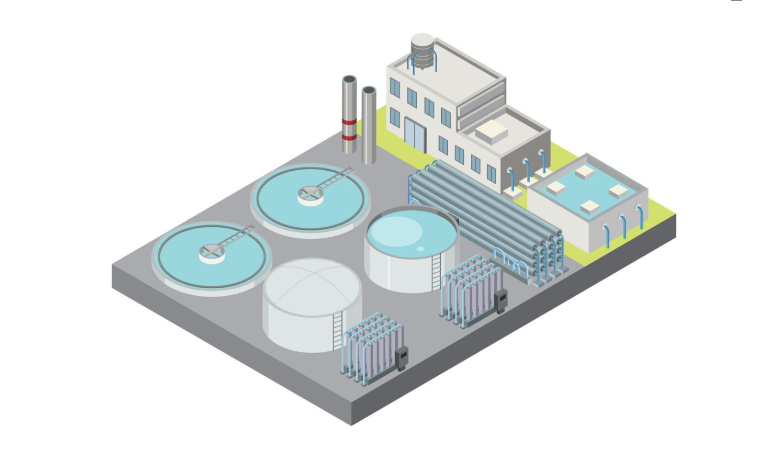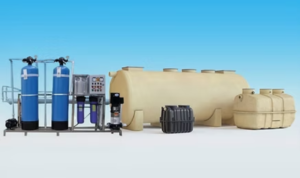
With the increase in population and the growth of the cities, it has become a challenge to handle the waste water in a responsible manner. Regardless of whether it is a school, hospital, hotel, or an industrial site, untreated sewage can discharge toxins and be extremely detrimental to the environment and be a great health risk. This is why it is essential to have a sewage treatment plant (STP) which is supposed to purify wastewater prior to its discharge or reuse.
A STP eliminates the solids, organic materials as well as microorganisms that are harmful to the sewage and only clean and safe water flows into the environment. Organizations are able to facilitate cleaner and healthier environment by install sewage treatment plant which effectively not only keeps the environment clean but also makes the environment healthier.
What Do You Think Will Happen in the case you do not install a Sewage Treatment Plant?
In the absence of a proper sewage treatment system, the wastewater will infiltrate into the soil and groundwater which contains human waste, detergents and chemicals. It can cause the following contamination:
- Waterborne Diseases: Dirty water transmits diseases such as cholera, dysentery and typhoid.
- Pollution of the Environment: Untreated wastewater destroys aquatic life and the quality of the soil.
- Dust and Uncleanliness: Smelly trash and unhealthy environment.
- Legal Punishments: A good number of the environmental laws have now become obligatory to have a sewage treatment system installed on large facilities.
Thus, the installation of an STP is not a matter of compliance but rather of the provision of the citizens with good health, sustainability, and corporate responsibility.
What is the Work of a Sewage Treatment Plant?
Installation of sewage treatment plant takes a few stages that are scientific to clean wastewater effectively:
- Preliminary Treatment: Screens and filters get rid of coarse solids and debris.
- Primary Treatment: Sedimentation tanks are used to separate solid and liquid.
- Secondary Treatment: Organic waste is broken down by beneficial bacteria to lower the biological oxygen demand (BOD).
- Tertiary Treatment: The water is treated with chlorine or UV light, and it is all safe to discharge or reuse.
- Sludge Management: The remaining sludge is processed, dried and disposed or utilized as fertilizer.
The contemporary STPs are small, automatic and energy saving- perfect in residential societies and institutions, as well as hotels.
Why Are Sewage Treatment Plants and Odor Control System in Hotels?
Hotels produce enormous amounts of wastewater daily, which are in the form of rest rooms, kitchens, laundries, and guest rooms. Installation of STP will help to make sure that this wastewater is treated and then released or reused. Nevertheless, even a properly operating STP may produce unpleasant odors in case it is not taken care of. It is there that the need to have an odor control system for hotels is needed.
These systems eliminate sewage pollution, grease trap and garbage odorous, which keep the environment of the guests and employees pleasant. A clean and fresh smell in a hotel creates an impression and confirms to excellence of hospitality.
What is an Odor Control Hotel System?
Hotel odor control system is a concept that employs different technologies to counter bad smelling that is brought about by organic decomposition in wastewater systems. Common methods include:
- Biofiltration: Unclean air with foul odor is directed through bio-media, which has odor-eating microorganisms.
- Activated Carbon Filters: Absorbs and cells odor molecules.
- Chemical Scrubbers: Hydrogen sulfide and ammonia gases are eliminated by the use of safe neutralizing chemicals.
- Enzyme and Mist Systems: Spray odor neutralizers that are friendly to the environment in the air or wastewater tanks.
Combining these systems with sewage treatment plants, hotels will be able to keep the odors down to none and dispose of waste in a responsible manner.
What Are the Advantages of installing a Sewage treatment plant in Hotels?
An STP system with an odor control system can provide a set of advantages to hospitality buildings:
- Green Operations: Wastes are recycled into garden, flushed, and cooled water.
- Regulatory Compliance: Adheres to the pollution control board norm and environmental regulations.
- Cost Savings: More independent of municipal water and wastewater disposal cost is minimized.
- Improved Guest Experience: Removes bad smells and encourages a hygienic setting.
- Brand Reputation: Makes the hotel a sustainable and responsible company.
Hotels that invest in the advanced wastewater and odor control technologies do not only safeguard the environment, but they also attract environmentally-conscious travelers.
Installation of a Sewage Treatment Plant on a Hotel or Commercial Space?
The placement of sewage treatment plant is a process that is carried out in stages and conducted by environmental engineers:
- Site Analysis: Evaluate water circulation, daily sewage discharge and land area presence.
- Design and Planning: Select appropriate capacity and treatment technology in regard to hotel size.
- Installation: Assemble tanks, aeration systems, pumps and control units.
- Testing & Commissioning: Water quality: make sure that it is safe.
- Maintenance: Cleaning, removal of sludge, and performance checks should be scheduled on a regular basis.
To achieve maximum efficiency, an odor control system and an odor control system should be combined with the STP to ensure that the hotels will maintain smooth, hygienic, and guest friendly operations.
FAQs
Q1. Does a sewage treatment plant have to be installed in a hotel?
Yes. To minimize their wastewater discharge hotels and big buildings are required to install STPs in order to treat their waste water before overseeing their release in various states and nationwide.
Q2. And what should be the frequency of an STP?
Regular maintenance after every 3-6 months guarantees maximum functionality and a non-odorous operation.
Q3. Are odor control systems chemical-based systems?
Others apply bio-enzymes or natural neutralizers, and others make use of safe and low impact chemicals that are endorsed to be used in the environment.
Q4. Is it possible to reuse treated sewage water?
Yes. The non-drinking water can be treated water that is to be used in flushing, landscaping or cooling.
Final Thoughts
In order to operate a sustainable and guest-friendly establishment it is imperative to install a sewage treatment plant and a system that combines an odor control system to the hotels. They work together to provide effective management of wastewater, odorless environment, and environmental regulation.
Since the adoption of eco-friendly technologies in hotels, the systems are crucial in the conservation of water, less pollution and a healthier planet. The current investment in these solutions will ensure cleaner operations, happy guests, and future of hospitality will be green.












